A World Without Loot Boxes: What Should You Expect To Pay For Non-Random Loot?
It seems like we'll see some kind of regulation regarding loot boxes in video games sooner rather than later. Whether that comes from the developers themselves (right...) or from various governments (more likely) remains to be seen, but the wheels are already in motion and nearly anything could happen.
One of the notions gamers seem to be behind is the “Just Let Us Buy The Damn Stuff We Want” idea. In other words, eliminate loot boxes and just let us buy the things in them piecemeal. No randomness, no “gambling,” no getting tons of crap we don't want. We'd still gladly open our wallets for game companies, if they just treated us fairly.
The problem with this notion is the prices. As ArenaNet basically admitted to, offering Guild Wars 2's Mount Adoption Licenses in random form allowed them to offer them for a mere 400 Gems/$5 apiece – a “substantial discount,” as Mike O'Brien put it. They wouldn't let you pick a non-random Mount License for $5 apiece because, well, then they'd make less money.
That would be the same with any loot-box-offering company. You can buy two Hearthstone packs, equaling 10 cards, for $2.99, or $0.30 per card. That doesn't mean that, if they offered the option to buy cards directly, Blizzard would sell them for $0.30 each. As with GW2's mounts, the randomness, not to mention varying rarity levels for Hearthstone, lets Blizzard offer the packs as a “substantial discount.”
So what would they cost? For Guild Wars 2, at least, that's not hard to figure out. ArenaNet sells individual mount skins for 2,000 Gems/$25, making them 5 times as expensive than the random versions. It works for ArenaNet, but would a 5x multiplier work for other games? That's what I'm going to try and figure out.
Warning: Math ahead. I'll try to show my work as best I can.
Ground rules
First, let me lay down a few of the parameters of my experiment. I'm only doing this for a few games for which we know the drop rates – either from official sources, like the developers themselves, or from solid research by players. In the case of GW2's mounts, that's easy: All 30 of the licenses have an equal chance of being dropped. The other games I'll be looking at are a bit more complex.
Also, many games have various packages for their loot boxes you can buy, decreasing the per-item cost if you buy more. For Hearthstone, you can buy two packs for $2.99 ($1.50 each), seven packs for $9.99 ($1.43 each), 15 packs for $19.99 ($1.33 each) and so on. I'll generally go with a mid-tier package for my computations, figuring that's what a company would use if it were actually trying to figure these prices out for itself.
Finally, I'm not taking duplicates into account. Some games let you get them, some don't, and some, like Hearthstone allow duplicates for some cards and not others. For simplicity's sake, I'm just going to ignore the topic (with one mention of it near the end of my analysis).
Case 1: Path of Exile
So, what does that leave us? Probably the easiest game to test things out on is Path of Exile. Grinding Gear Games sells individual loot boxes for $3 each; tells us the odds of getting loot (45%/35%/20% for common/uncommon/rare); and sells the items individually, albeit a few months after the loot boxes have come out. Basically, GGG is already doing what our scenario says could be required by law at a later time.
Here's a list of what you can find in the Fire & Ice Mystery Boxes. 10 points = $1, so the average rare item would cost $21.71, the average uncommon $11.43, and the average common $6 if you bought them individually. Given the listed odds, if you bought 20 loot boxes for $60, you would, on average, come up with 4 rares, 7 uncommons, and 9 commons.
Now, here's the tricky part, and it's a bit of an assumption on my part. I'm going to say that each “set” in a rarity is worth the same. So the 9 commons have the same value as the 7 uncommons and the same value as the 4 rares. Each of those subsets is worth $60/3 = $20, so the pricing breaks down:
Rare: $20/4 = $5.00
Uncommon: $20/7 = $2.85
Common: $20/9 = $2.22
But wait! This isn't what you should expect to pay if you buy something individually. We're still dealing with random drops here, so this is the price you might expect if GGG offered to sell you a random pick from these rarity levels. What should it charge you for your pick of an item from each of those levels?
Well, we already established average prices for choosing items above. The difference between that and our random picks is:
Rare: $21.71/$5.00 = 4.3
Uncommon: $11.43/$2.85 = 4.0
Common: $6.00/$2.22 = 2.7
I wouldn't go so far as to say commons are valueless, but I'm more inclined to go with the numbers provided by the uncommon/rare cases, which say basically this:
In Path of Exile, an item you can choose to buy costs about 4 times what a random item of the same rarity would cost.
This makes PoE items a slightly better deal than GW2 mounts, which we saw went for 5 times the cost of a random mount. Both of these games offered pretty simple cases with known drop rates, however. So let's try something a bit more complex.
Case 2: Hearthstone
Between reading official sources translated from Chinese (for legendary and epic drops) and player drop rate research (for the likelihood of getting multiple rares), I'm going to go with the following ratios for Hearthstone rarity drops:
Legendary: 1 per 20 packs
Epic: 1 per 5 packs
Rare: 1.15 per pack
Common: (the rest)
Let's run our numbers with a 40 for $50 bundle of packs. That's 200 cards, which should give us:
Legendary: 2
Epic: 8
Rare: 46
Common: 144
If you were to break down every one of these cards into Arcane Dust, you'd get 720 for the commons, 920 for the rares, 800 for the epics, and 800 for the legendaries. That's all pretty close, especially for the legendaries/epics (and might just mean I'm overestimating the number of packs with duplicate rares), so I feel even more confident in my assertion that each rarity “tier” has equal value.
If that's the case, then each tier costs $12.50, and the per-card cost for each random pick is:
Legendary: $12.50/2 = $6.25
Epic: $12.50/8 = $1.5625
Rare: $12.50/46 = $0.2717
Common: $12.50/144 = $0.0868
Unlike GW2 and PoE, however, we don't know what Blizzard would sell cards for if you could buy them individually … or do we? Take a look at the Arcane Dust breakdown and crafting requirements. If I get 4 legendaries – any legendaries – randomly from packs, that's enough Dust for me to create a legendary of my choosing. In effect, 4 random legendaries = 1 legendary of my choosing.
The same ratio applies for epics, while rares go at a 5-to-1 ratio and commons at 8-to-1. Like with PoE, I'm more inclined to go with the numbers established by the higher-end loot and would surmise that
In Hearthstone, a card you could choose to buy should cost 4 times what a random card of the same rarity would cost. This is already effectively established by the Dust requirements of legendary and epic cards.
That would give us prices of:
Legendary: $25
Epic: $6.25
Rare: $1.09
Common: $0.35
Maybe Blizzard would “round” some of those figures, but I think they'd be roughly in the ballpark. $25 for a legendary seems a bit more than what an average desirable rare Magic: The Gathering card costs but probably less than top-tier mythic rares. Unlike in Magic, though, where you can stock up to four copies of a card in your deck, you'll only ever need one legendary in Hearthstone.
What about golden cards? Based on how much more they cost in Dust to craft, you might simply apply that multiplier to the regular card prices:
Legendary (2x): $50
Epic (4x): $25
Rare (8x): $8.70
Common (10x): $3.50
As an alternative to all of this, Blizzard might just sell Arcane Dust outright and let you use it as you will. For non-golden cards, those numbers break down like this:
Legendary: $25/1600 = $1.56 per 100 Dust
Epic: $6.25/400 = $1.56 per 100 Dust
Rare: $1.09/100 = $1.09 per 100 Dust
Common: $0.35/40 = $0.86 per 100 Dust
Again, I'd expect the rarer cards to drive the costs, so something like $1.50 per 100 Dust would seem appropriate. That would result in a cost of $24 for a legendary, $6 for an epic, $1.50 for a rare, and $0.60 for a common.
A final case: Overwatch
Even though it's not free-to-play, I also ran the numbers for Overwatch, since it has (mostly) known odds for its loot boxes. Though it's taken me a while to put it all in print, my final number-crunching on everything took place early in the afternoon on Tuesday, Jan. 9.
Coincidentally, that was nearly the exact same time that Blizzard announced the prices for skins for the Overwatch League. It's the first time the game has sold individual skins – i.e., not as part of a loot box or a promotion that includes other items, like a BlizzCon ticket.
My computations for Overwatch indicated that a random legendary item should cost $3.125, epic $1.25, rare $0.20, and common $0.09. Using my 4x multiplier for an item you can choose, that gives me $12.50 for a legendary, $5 for an epic, $0.80 for a rare, and $0.36 for a common.
Overwatch League skins are considered to be of epic (purple) rarity. They sell for 100 tokens apiece, and 100 tokens cost $4.99. So at least as far as Blizzard's games are concerned, I'd say my 4x estimate is spot-on and close enough for Path of Exile and Guild Wars 2.
While we don't know the exact drop rates for items in most loot boxes – including GW2's “other” loot boxes, Black Lion Chests – the game developers know. The mid-tier BLC Key package is 5 for 450 Gems, or $1.125 apiece. ArenaNet could use that information and do the same math I did, multiplying the “random cost” by four or five, as they wish, to establish prices. They might already be doing that for some Gem Store items that are similar to BLC drops, as they did for Mount Licenses.
My verdict is that you should expect to pay roughly 4 times for an item you pick over what a random chance at it in a loot box would be, though a game like GW2 charging five times more isn't exorbitant. Every game has to set its prices based on a multitude of factors. At the very least, there will be a premium to pay for having your choice of an item, and hopefully my little experiment has given us some insight as to what that will be.
Related Articles
About the Author

Jason Winter is a veteran gaming journalist, he brings a wide range of experience to MMOBomb, including two years with Beckett Media where he served as the editor of the leading gaming magazine Massive Online Gamer. He has also written professionally for several gaming websites.
More Stories by Jason WinterRead Next

When it comes to gaming, I don’t always feel like playing with a bunch of people.
You May Enjoy

The Paradise system is designed specifically for the global version of the game.

The game promises “a dynamic battlefield where each move and card placement matters”.

Players are already raising red flags...

A "split-rendering" game system and a world shaped by the players.
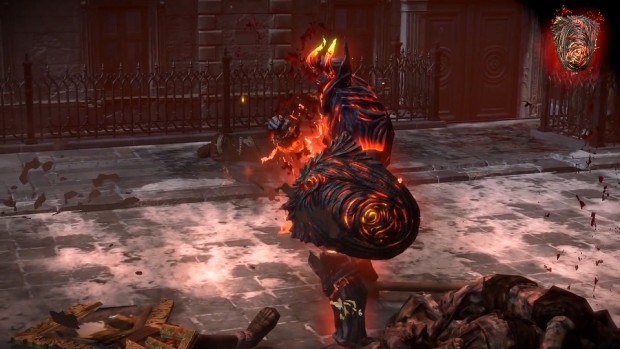
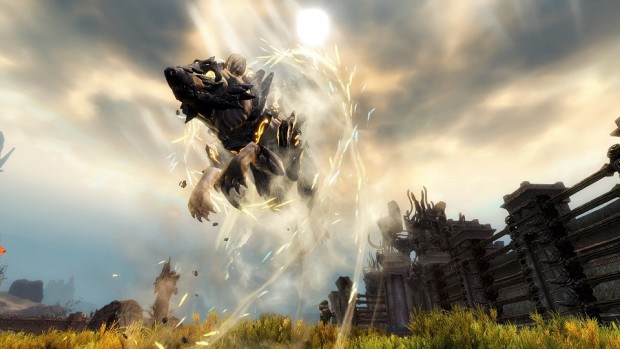
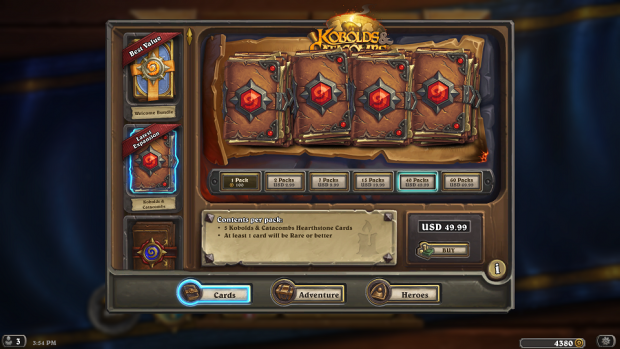
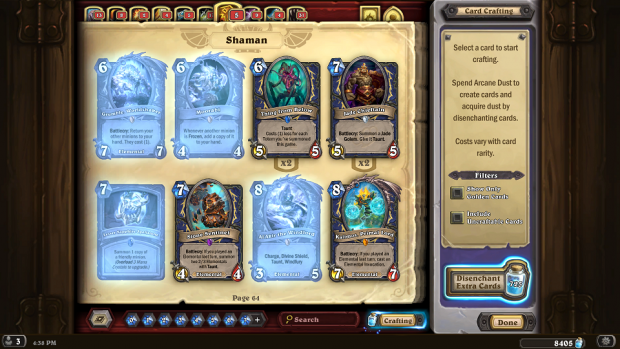
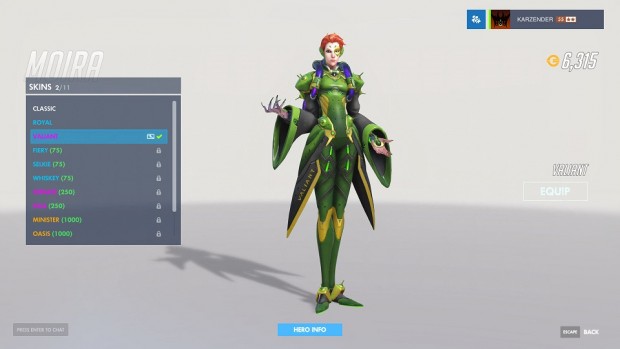
Devs charge what they want and not what the virtual item is worth. That is the problem. Paying 40/50 dollar for a bunch of 1 and 0? No, thank you. And don't even begin with that thing that games cost more to make nowadays. EA debunked that.
if the game adds more subs I just am not interested unless its a update or a correction. if the game wants more money or add pay dlc & all that other rubbish I am just not interested or that stupid.
I just play the core of the game as if its in place initially why would you want to waste your time. This loot box means nothing to me.
Core game play & that's it.
To all The "Ronnie richies" out there please wake up and stop blowing into the wind for thrown in rubbish & gambles of rubbish.